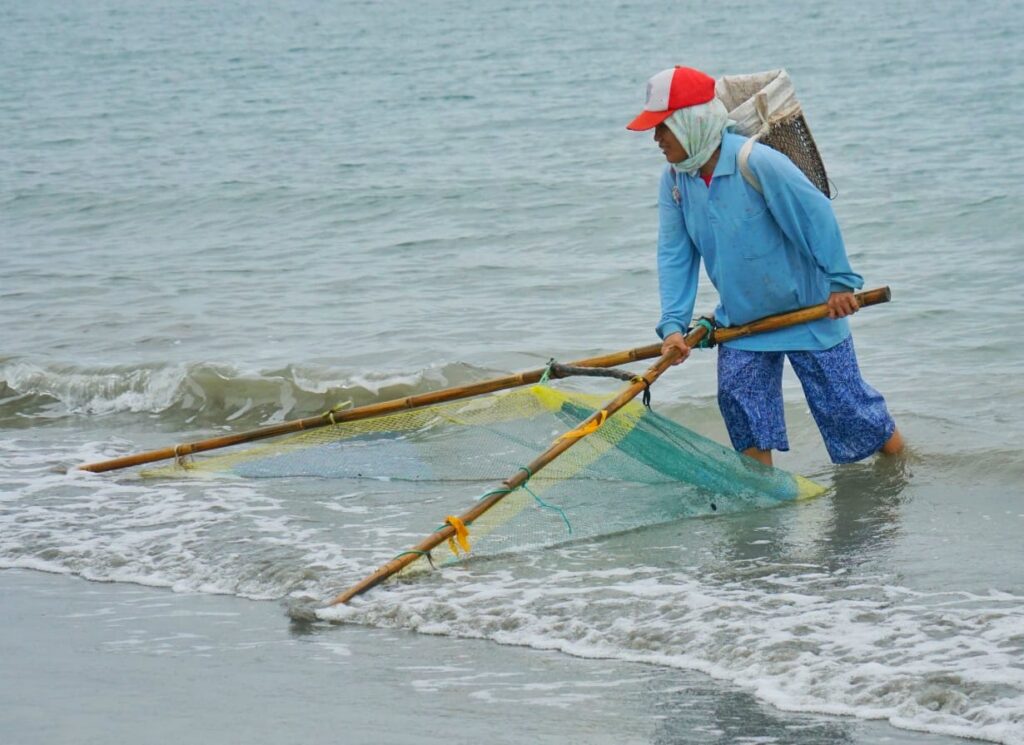"There are more new cases (of domestic violence), already two in our village."
Head of Malancan Village at a stakeholder meeting in Tua Pejat Regency, West Sumatra Province.
West Sumatra is one of the provinces with a fairly high number of sexual violence against women and children. Based on data from the National Commission on Violence Against Women in 2021, the number of gender-based violence against women in West Sumatra reached 9,237 cases. The majority are cases of domestic or family violence committed by those closest to them.
West Sumatra is one of the intervention provinces for the Estungkara program which aims to promote equality to eliminate injustice and discrimination. Together with partners Citra Mandiri Mentawai Foundation (YCMM), KEMITRAAN carried out data collection in the period August-November 2022 on indigenous women in the Mentawai Islands. Of the 854 respondents, 113 of them were female heads of families, the majority of whom were under 20 years old with incomes of under 1 million rupiah per month.
This condition increasingly increases women's opportunities for poverty and places them at risk of vulnerability. Moreover, they are vulnerable to facing the risk of gender-based violence because the situation is unequal to that of men, both in terms of income, decision making and capacity. In fact, indigenous women can be said to be the main foundation in the sustainable development process. Indigenous women play an important role in maintaining cultural values and local wisdom through their intellectual set.
In a number of indigenous communities, indigenous women inherit traditional knowledge as an effort to protect and manage resources to support their communities. Such as the traditional management of natural materials for treatment which have been passed down from generation to generation from their ancestors, rituals, and knowledge of processing local commodities such as weaving and plaiting.
Patriarchy and Violence Against Indigenous Women
The vulnerabilities faced by Mentawai traditional women are often due to differences in roles, male dominance in decision making, the perception that women do not have the capacity, and stigma towards women. It is assumed that women do not have the capacity to dominate as many as 29,08% in the Mentawai traditional region. This condition is the main cause of inequality between men and women. The dominance of men shows that the patriarchal aspect is one of the main problems apart from poverty as a cause of the emergence of cases of gender-based violence within indigenous communities.
From the book "Elimination of Sexual Violence from Various Perspectives (2010)" it is stated that patriarchal culture is one of the factors causing violence against women, in this context indigenous women. Patriarchal culture is a social construction that is entrenched and considered correct. This concept shows the subordination of men to women to describe men's power over women. So the problems of sexual violence that often occur are often not due to lust, but because they want to show their dominance over women.
A case of sexual violence that occurred in a village in the Mentawai Islands often ended in the customary/community realm. This is to avoid stigma against women as victims of sexual violence when they have to report this to the police. On the other hand, it is also due to a lack of understanding regarding women's rights and gender equality within the scope of indigenous communities, so that these cases always ignore the rights of women as victims, and there is a potential for repetition of cases.
The lack of understanding of victims' rights, the stigma that labels women, and the continued existence of patriarchal culture means that cases of violence against women continue to occur.
Collective Efforts to Break the Chain of Gender-Based Violence Against Women
The TPKS Law is a concrete manifestation of the state's presence in supporting the handling and prevention of all forms of sexual violence. This law covers efforts to protect and restore victims, carry out law enforcement, rehabilitate perpetrators, and create an environment without sexual violence. However, in order for this law to be implemented, it still requires derivative regulations, which regulate more technically, from Government Regulations (PP), ministerial regulations, and so on down to the village level.
YCMM through the Anti-Violence Against Women and Children Coalition (KAPAK) in 2022 has encouraged efforts to realize the Draft Regional Regulation regarding the protection of women and children which is currently still in the process of being numbered. However, this effort still has a long way to go to reach the village level to provide guarantees for the fulfillment of rights for victims, especially indigenous communities.
"The draft regional regulation still needs to be supported by village regulations and the involvement of village communities to truly break the chain of violence against women and children," said Tarida, YCMM Program Manager.
The regulations that exist in society certainly hold one of the important keys to how community involvement can provide protection for women and children in the community. Socialization and education regarding the importance of gender equality also needs to be carried out continuously to build public awareness of the importance of creating safe spaces for women and children in their communities. This also aims to deconstruct the stereotypes that have been built up towards women.
On the other hand, guaranteeing legal protection for women and children also needs to be supported by efforts to increase women's active participation and involvement as part of efforts to empower women. Women who are empowered, of course they will be better able to protect themselves and their families, and with women who are increasingly empowered, little by little they will be able to eliminate the label as weak and incapable individuals.


